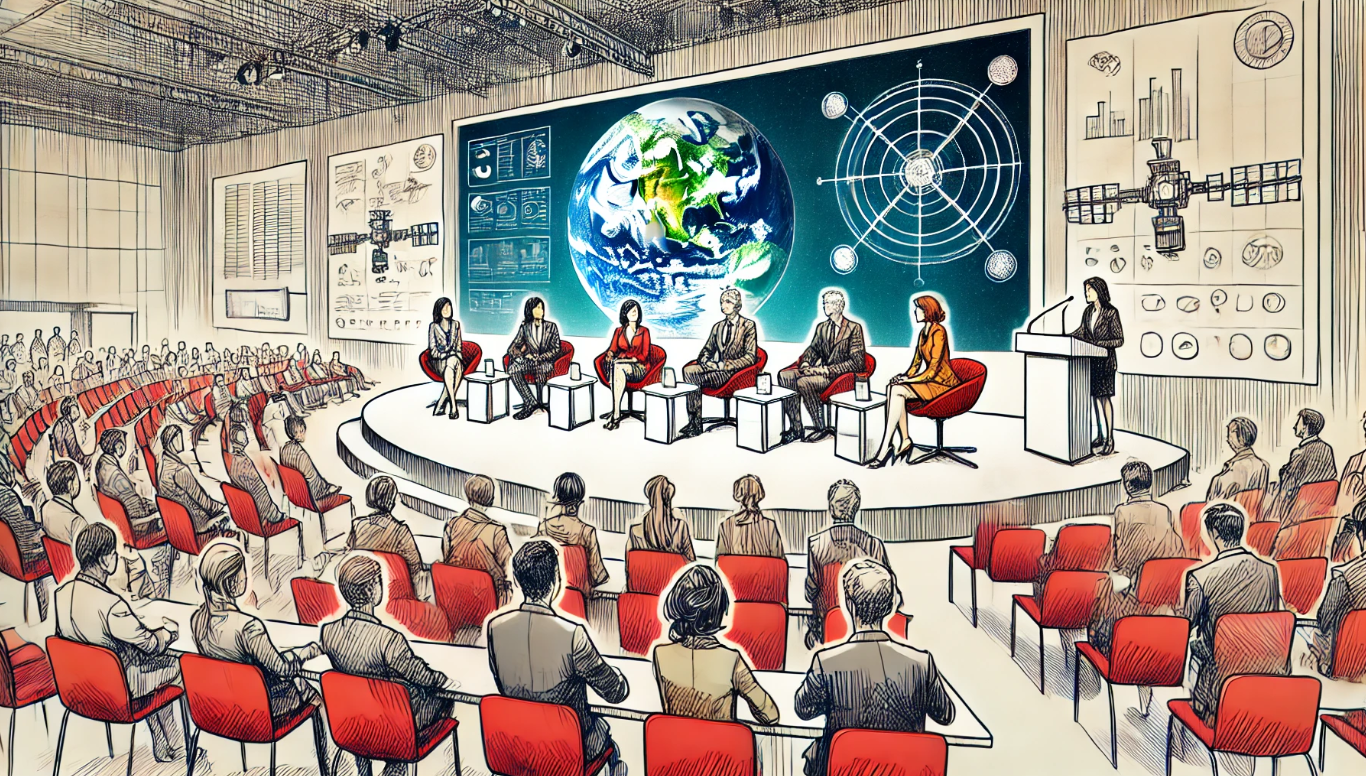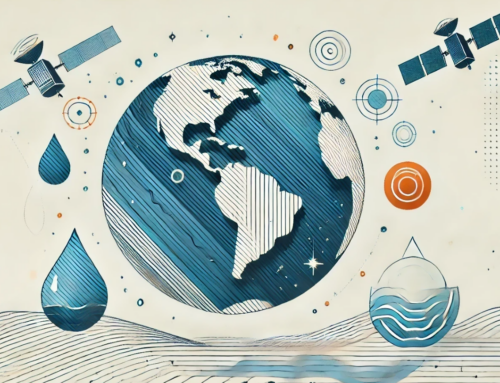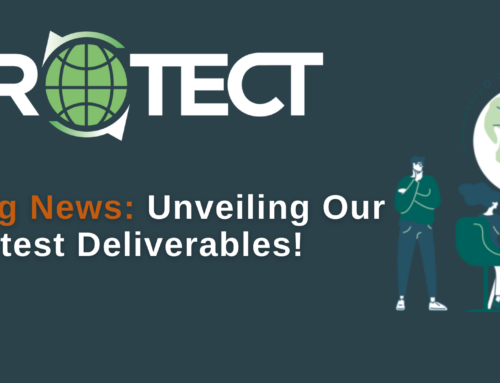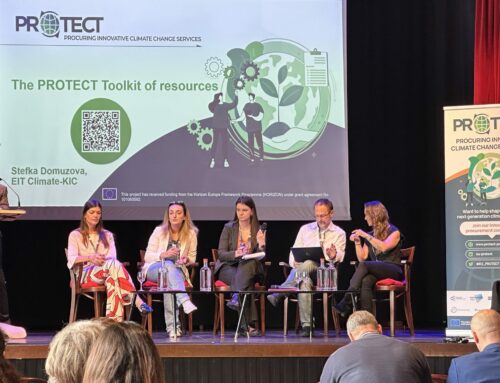The final event of the PROTECT project, held on June 11th, brought together a diverse array of experts, stakeholders, and public buyers to discuss the significant advancements and outcomes of the project. The focus was on innovation procurement and the role of pre-commercial procurement (PCP) in fostering new solutions, particularly in climate change adaptation and Earth observation (EO) technologies. Here are the highlights from this significant gathering. The event took place in the framework of the EXPANDEO Conference 2024, in Brussels, organised by EARSC.
Opening Remarks
The event started with welcoming remarks by PROTECT’s Project Officer, Erwin Goor from the European Commission/Research Executive Agency, and Project Coordinator Marc Pattinson from G.A.C. Group. This was an opportunity to showcase PROTECT’s achievements and bridging them to the forthcoming results of the PCP call and the subsequent follow-up project. Their introductions set the stage for a day of insightful discussions and networking opportunities.
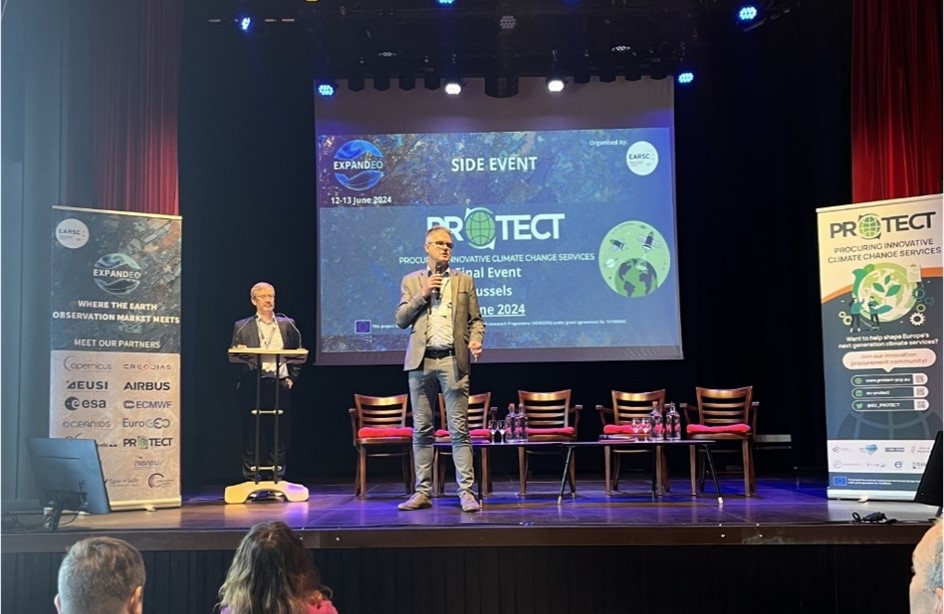
Panel 1: How Pre-Commercial Procurement supports climate change adaptation
The first panel, moderated by Stefka Domuzova from EIT Climate-KIC, explored the intersection between climate change adaptation efforts and PCP. This session aimed to elucidate how public authorities can leverage PCP to develop tailored EO-based solutions for climate adaptation challenges.
Cristobal Reveco, a climate adaptation scientist from GERICS, discussed the importance of high-resolution data and funding for local authorities to create effective adaptation plans. Nora van Cauwenberg, an expert in water and sustainable development highlighted the role of existing initiatives, such as MIP4Adapt and NetZeroCitiesEU, and new regulations such as the EU taxonomy and climate risk disclosure in driving private sector involvement. Thanh-Tâm Lê from EIT Climate-KIC emphasised breaking organisational silos to build consistency and shared understanding between community actors, public, and private sectors. The panel concluded with a discussion on how public procurement can drive adaptation projects by lowering risks and attracting private investment through blended finance and public guarantees.
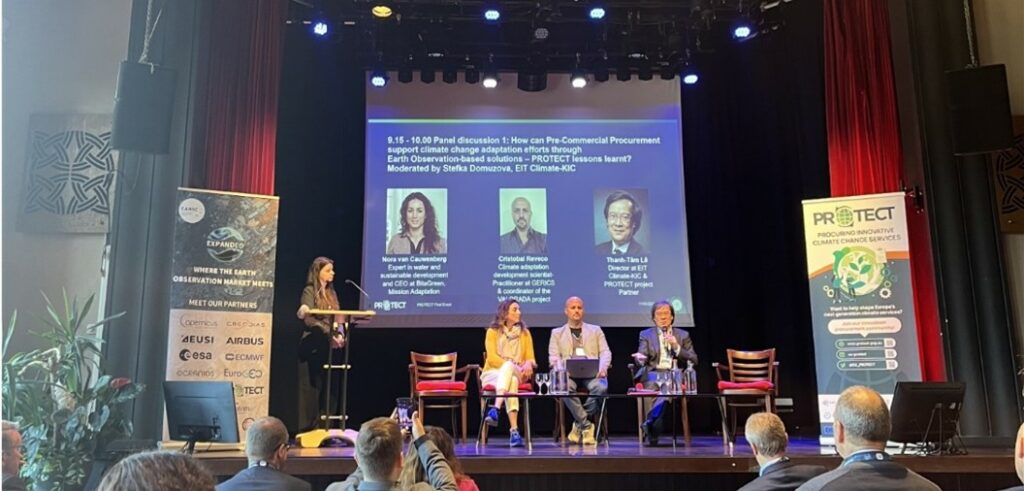
Panel 2: How Innovation Procurement can boost development
Moderated by Jozef Kubinec from the Ministry of the Interior of the Slovak Republic, the second panel delved into the role of innovation procurement in fostering the development of new solutions. This session provided a comprehensive overview of innovation procurement, PCP, and procurement of innovative solutions (PPI), crucial for stimulating research and development.
Lieve Bos, a Policy Officer from the European Commission, explained these concepts, followed by concrete examples from the health and security sectors. Samira Boussetta, Innovation Procurement Expert, shared practical examples of PCP and PPI in the health sector, highlighting their frequent application. Bernhard Jäger, from SYNYO, compared the stages of PROTECT and iProcureSecurity, offering insights into the future of PROTECT PCP. Finally, Vassilis Tsanidis, from the European Innovation Council, introduced the new Strategic Innovation Procurement Programme of the EIC, presenting exciting opportunities for European public buyers and EIC beneficiaries.
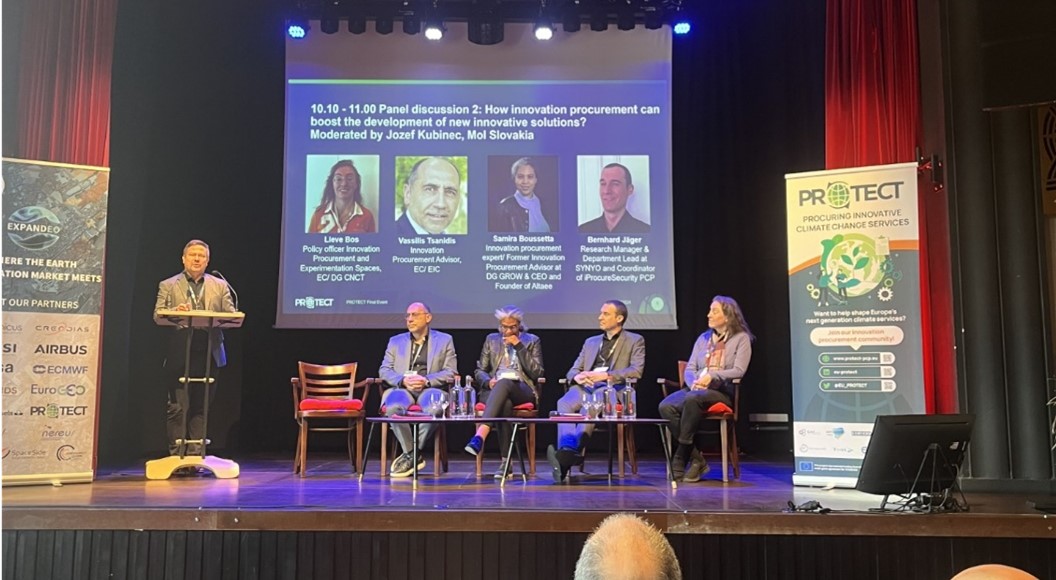
Panel 3: Earth Observation for innovative climate solutions and governance tools
The third panel, moderated by Remco Timmermans from SpaceSide, brought together key stakeholders to discuss how EO data can contribute to innovative climate adaptation solutions and governance tools. The session gathered representatives from space agencies, funding bodies, and academia to highlight the benefits and applications of EO data.
Franz Immler from the European Commission’s DG RTD, Emmanuel Pajot from EARSC, and Annalisa Donati from EURISY discussed how EO data could be pivotal in developing climate services that help adapt to or mitigate the effects of climate change. The discussion emphasised the importance of EO data in creating informed decision-making tools for both public and private sectors.
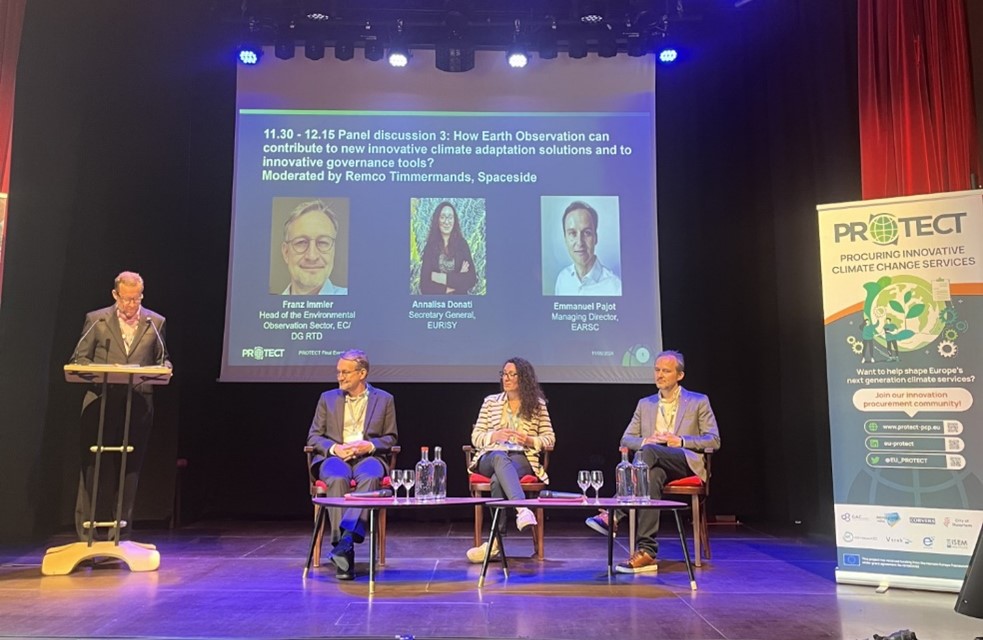
Networking sessions
After the morning sessions, participants had the opportunity to network and interact with various stakeholder groups, including PROTECT project partners, PCP WISE buyers, EO providers, and representatives from other EU projects VALORADA, CLIMAAX and Climateurope2.
Presentation of PROTECT Key Exploitable Results
Post-lunch, the event featured a presentation on the PROTECT project and its Key Exploitable Results. Marc Pattinson from G.A.C. moderated this session, which showcased the four main outcomes developed by the PROTECT CSA project. These include the PROTECT Community of climate services procurers, the e-catalogue of EO-based climate service providers, the toolkit of awareness-raising and capacity-building resources, and the guidance and recommendations for future actions. Each of these results was explained in terms of their added value and potential for further reuse in the upcoming PCP project.

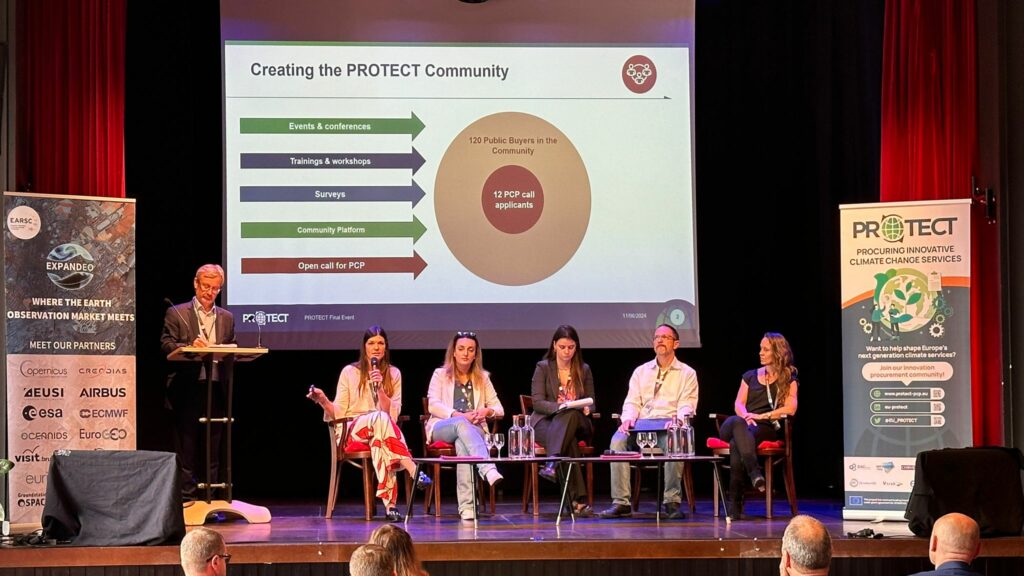
Panel 4: From PROTECT CSA to PCP WISE
The final panel, moderated by Matty van Sloten, from Corvers Procurement Services, gathered public buyers from the PROTECT community who are part of the PCP WISE Consortium. This discussion centred on the challenges proposed in the PCP application and the development of prototype solutions based on EO data.
Hans van Leeuwen from STOWA elaborated on the PCP WISE project’s aims to address water-related issues such as drought and water excess in both rural and urban settings. Hugo Goncalves from Forum Virium Helsinki and Valentina Schippers-Opejko from the City of Haarlem provided insights from an urban perspective, emphasising the need for integrated approaches to tackle climate-related challenges. Martin Tuchyna from the Slovak Environmental Agency discussed the regional impacts of floods and wildfires and the preventative measures they hope to implement using EO data.
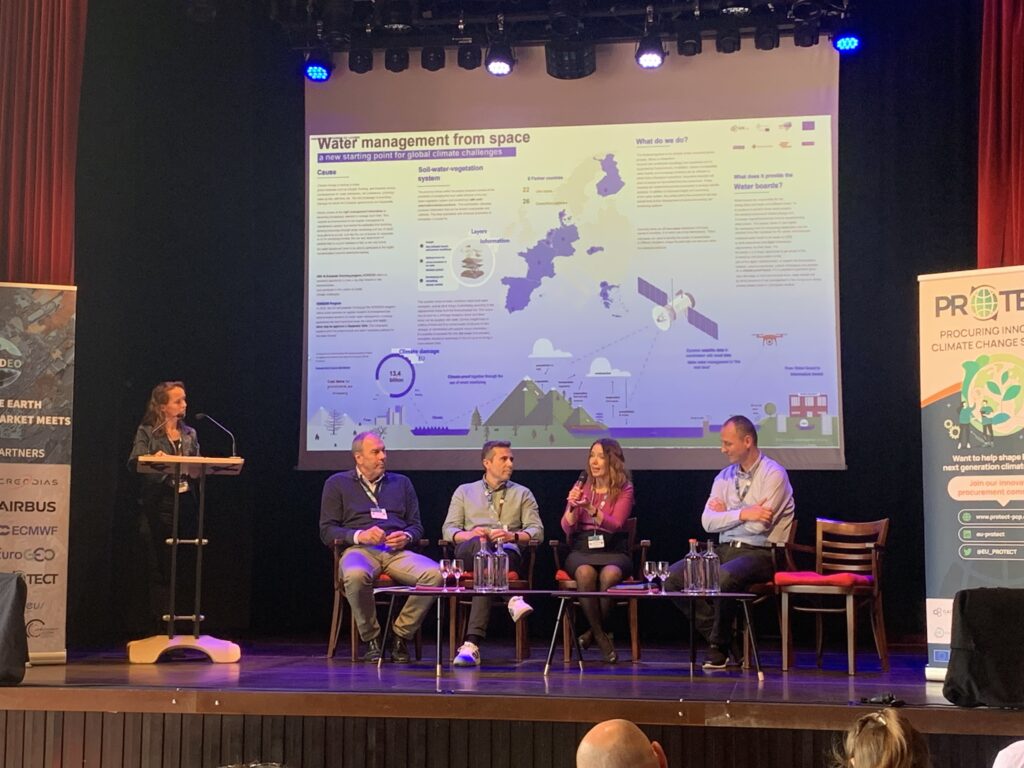
Watch the replay of the session here.
The final event of PROTECT underscored the significant role of innovation procurement and EO technologies in addressing climate change and fostering innovative solutions. The discussions highlighted the importance of cross-sector collaboration and the need for continued investment in research and development to tackle the challenges posed by climate change.

